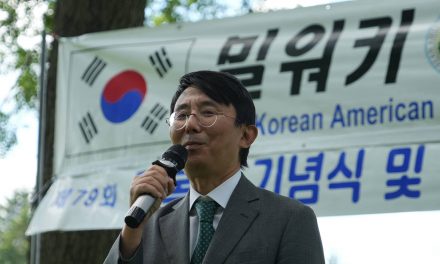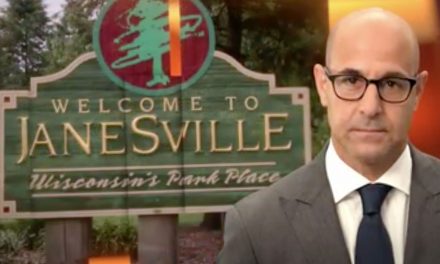
“We must undo the superstition of chronology (‘progressivism’) in order to find eternity.” – Simone Weil, philosopher
During this turbulent moment for American democracy, Simone Weil’s words remind us that progress is not always linear, and that true values may lie beyond any notion of political advance or retreat.
When Donald Trump was overwhelmingly re-elected on November 6, many Americans saw it as a regression, a painful step backward from the ideals they felt were beginning to take root in American society.
For those who supported the messages of empathy, unity, and progressive reform promoted by Vice President Kamala Harris, Trump’s victory represented an unsettling vision for the trajectory of the United States.
As they and others process the election outcome, Weil’s insight into the nature of progress and time can offer a powerful way to understand and perhaps transform what is expected to be four years of disappointment.
THE TRAP OF LINEAR PROGRESS
A philosopher, activist, and mystic, Weil was deeply skeptical of the idea that history is a line of unbroken progress, with each moment bringing humanity closer to perfection. Instead, she believed that the notion of “progressivism,” the idea that society naturally evolves toward a better state, can be a “superstition” blinding people to the value of timeless, enduring truths.
For Weil, the true measure of humanity was not in political advancements but in moral and spiritual values that stand independent of any historical moment.
In the context of Trump’s re-election, many might interpret Weil’s insight as an invitation to reconsider what true progress means. Is it simply an unbroken march forward, or could it also be found when individuals make a commitment to values that remain steady, regardless of political tides?
Those who feel a sense of loss in the 2024 election might find perspective in the idea that values like compassion, integrity, and justice can endure and guide them, no matter the temporary detours taken by a nation.
THE FALLACY OF “PROGRESSIVISM” IN AMERICAN POLITICS
For generations, Americans have held fast to the belief that the arc of history bends inevitably toward justice, that democracy gradually becomes fairer, more inclusive, and more just. This belief underpins the “progressive” vision that sees each election as a chance to push society closer to an ideal.
Trump’s re-election disrupts this view, reminding us that history is rarely so straightforward. The election outcome can feel like a rupture in that timeline, a step backward that defies the comforting belief that society is always moving toward a better future. Yet, Weil’s words challenge this thinking, urging us to recognize that true values are not confined to the arrow of history.
By holding tightly to the idea that progress must be linear, people may unintentionally tether their sense of hope and purpose to forces beyond their control, making them vulnerable to despair when political outcomes do not align with their hopes.
DISAPPOINTMENT AS A PATHWAY TO REFLECTION
Weil’s concept of “eternity” encourages us to look beyond the shifting circumstances of politics and to center our lives on values that transcend any single leader, election, or era. For those disappointed by the 2024 election, this perspective may offer a path away from bitterness and toward a deeper reflection on what truly matters.
Political victories are fleeting, and parties in power inevitably change. However, the commitment to values like kindness, fairness, and dignity can persist, guiding people in how they treat others and engage with the world.
Rather than seeing the election as a defeat of these values, Weil’s framework suggests that individuals can choose to live them out every day, regardless of the political climate. This approach transforms disappointment into an opportunity to anchor oneself more deeply in personal principles, rather than allowing political wins and losses to dictate one’s outlook on life.
THE ILLUSION OF CHRONOLOGY AND THE ENDURANCE OF VALUES
In moments of political regression, it is tempting to view history as a staircase, with every “wrong” step feeling like a descent back toward injustice and ignorance. But Weil saw chronology itself as a flawed construct, a kind of illusion that can obscure the deeper truths of life. History, she suggests, does not unfold in one direction but is a tapestry of moments where values can either be upheld or betrayed.
What can be learned from seeing history not as an upward trajectory but as a series of choices in the present? This view reveals that even in times of political loss, people have the power to act in accordance with their ideals.
Rather than waiting for history to align with personal values, Weil’s philosophy encourages individuals to live as though those values already define their world. In this sense, eternity is not a distant ideal but a present reality made possible by each person’s daily actions.
For those troubled by Trump’s victory, this shift in perspective can be liberating. While political progress may feel distant, moral and spiritual values can remain immediate and accessible. The commitment to fairness, truth, and kindness is not something dictated by the White House but by one’s own heart and choices. In the end, these values may outlast any administration.
FINDING “ETERNITY” AMID POLITICAL SHIFTS
When Weil speaks of “eternity,” she points to something beyond time, beyond the inevitable fluctuations of history. For those seeking meaning amid disappointment, eternity can be found in the steadfast pursuit of values that exist independently of any single moment in history. It is the recognition that the essence of humanity — the capacity for compassion, justice, and integrity — does not depend on who occupies a political office.
Processing disappointment in this way can turn frustration into resilience. When people ground themselves in values that remain unshaken by political outcomes, they can find a steadiness that transcends the temporary shifts in power.
This is not to deny the impact of politics but to affirm that each person holds an enduring power within their own actions. In this way, eternity becomes a source of strength, allowing individuals to navigate political cycles without losing sight of what they stand for.
LETTING GO OF “SUPERSTITION” AND TAKING RESPONSIBILITY
Weil’s critique of chronology as a “superstition” asks people to let go of the comforting yet ultimately misleading idea that society is always advancing. Recognizing the flaws in this view can be empowering, especially in times of political setbacks.
Rather than waiting for progress to “catch up” or placing faith in a future that may not come, Weil’s philosophy encourages people to take ownership of their values now, seeing them as truths to be lived out daily rather than goals to be achieved over time.
This approach to life invites Americans to take responsibility for their own moral compass, even when the political landscape feels hostile. For those disheartened by Trump’s re-election, this means finding ways to practice empathy, unity, and integrity in their communities, workplaces, and homes, regardless of the broader national climate. In doing so, they keep alive the values they cherish, even when these values seem absent from the highest levels of government.
REORIENTING HOPE AND ACTION
Ultimately, Weil’s insights suggest that true hope lies not in waiting for political systems to validate one’s ideals but in the unshakeable commitment to live them out. Disappointment then becomes less about the failure of society to progress and more about a renewed opportunity to reflect on and embody our deepest values.
This approach offers a path forward for those feeling adrift after the election, one that does not depend on external validation but on an internal dedication to what is timeless and true. Rather than viewing Trump’s victory as a setback in an imagined timeline of progress, individuals can instead see it as a reminder that progress is often an illusion, and that eternity — the enduring power of one’s values — is always within reach.
For those willing to take on this perspective, the election may still feel disappointing, but it need not be devastating. By grounding ourselves in values that transcend any political outcome, Americans have the power to shape a society that reflects our ideals, one action at a time, independent of any leader’s influence.
© Photo
Library of Congress and Shutterstock














